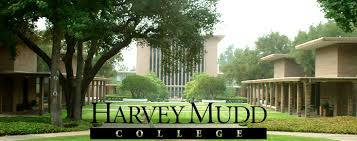Quantitative reasoning: Interdisciplinary STEM 21st century reasoning modality
Author(s): Robert Lee Mayes
Georgina Southern University
1439 total view(s), 238 download(s)
QR_STEM_Reasoning_Modality_6-13-15.pptx(PPTX | 8 MB)
- License terms
Description
Date & Time:
Wednesday, June 17 @ 9AM
Description:
The Next Generation Science Standards (NGSS 2013) and the Common Core State Standards for Mathematics (NGA 2010) call for improving scientific, engineering, and mathematical practices. Among the practices called for are model-based reasoning which engages students in developing and using models, analyzing and interpreting data, and using mathematics and computational thinking. Fundamental to these processes is quantitative reasoning (QR), which for this project is defined as:
Quantitative reasoning is mathematics and statistics applied in real-life, authentic situations that impact an individual’s life as a constructive, concerned, and reflective citizen (Mayes et al. 2014b).
In the NSF project, Culturally Relevant Ecology, Learning Progressions, and Environmental Literacy (or simply the Pathways project) a QR learning progression was developed to explore the trajectory of QR development across 6th to 12th grades. The QR progress variables for the QR learning progression include the Quantification Act (QA) - mathematical process of conceptualizing an object and an attribute of it so that the attribute has a unit measure; Quantitative Interpretation (QI) - ability to use models to discover trends and make predictions; and Quantitative Modeling (QM) - ability to create representations to explain phenomenon and to revise them based on fit to reality. Three parallel diagonistic assessments for QI were developed to inform the learning progression and provide an instrument to assess students QI ability. An overview of 21st century STEM reasoning modalities will be provided, including complex systems reasoning, scientific model-based reasoning, computational reasoning, engineering design, and quantitative reasoning. The QR learning progression will be presented, leading to a discussion of the three QI assessments and efforts to research their validity and enhance future versions. Outcomes of Rasch analysis of data gathered from administration of the assessments to a large sample of students from 6th to 12th grades will be discussed.
Cite this work
Researchers should cite this work as follows:
- Mayes, R. L. (2018). Quantitative reasoning: Interdisciplinary STEM 21st century reasoning modality. BioQUEST / HHMI / CaseNet Summer Workshop 2015, QUBES Educational Resources. doi:10.25334/Q4PM48
